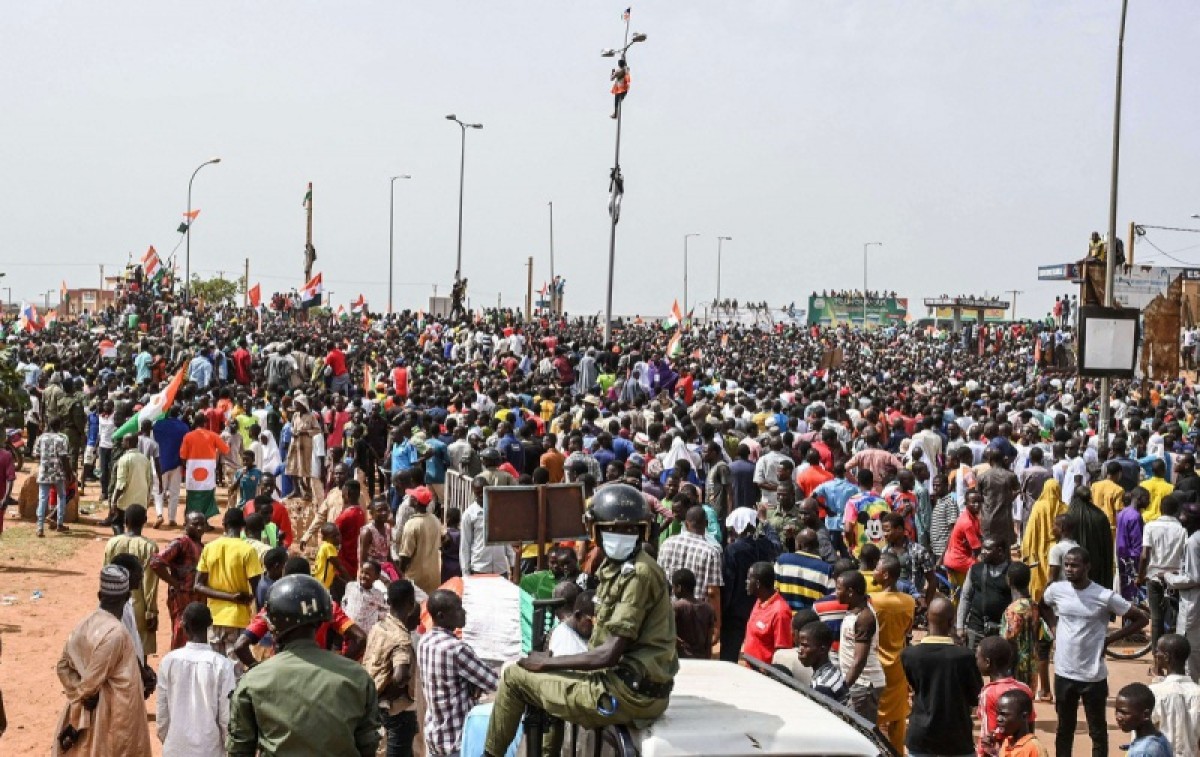France is no longer wanted in Niger


The frequent military coups in the Sahel region and West Africa have upended the equation of the French presence, which is ostensibly based on cooperation in combating terrorism and in its implications for securing interests in former French colonies, which indicates a radical shift that these coups represent against regimes described as being more loyal to the West than to them. For the interests of their countries.
France is struggling not only in the face of a growing wave of hostility in its former colonies, but also in maintaining a measure of its influence in Africa in the face of Russian influence that is eating away at its credit and restricting its expansion.
In the latest sign that shows the extent of popular rejection of the foreign presence in general, and the French presence specifically, tens of thousands of protesters gathered in front of a French military base in Niamey, the capital of Niger, on Saturday, demanding the departure of its forces in the wake of the military coup that received broad popular support, but Paris refuses to recognize.
The coup that took place on July 26 raised concerns among world powers who fear a shift towards military rule in West and Central Africa, which has witnessed eight coups since 2020.
The most affected country is France, whose influence over its former colonies in West Africa has diminished over the past years with increasing popular criticism. Neighboring Mali and Burkina Faso expelled French forces after two coups in those countries, reducing their role in the war against a militant Islamist insurgency that has claimed many lives in the region.
Anti-French sentiment has escalated in Niger since the coup, but it worsened last week when France ignored the military junta's order to leave its ambassador, Sylvain Etty. The military council said that the police had received instructions to expel him.
Protesters slaughtered a goat and dressed it in the French flag in front of the military base. They also carried coffins wrapped in the French flag in front of a row of Nigerian soldiers. Others raised banners demanding that France leave.
Saturday's protests are the largest gathering so far since the coup, indicating that support for the military junta has not diminished and anti-French sentiment has increased.
Protester Yaacoub Issoufou said, “We are ready to sacrifice ourselves today, because we are proud... They have plundered our resources and we have become aware of it. So they will come out.”
France enjoys friendly relations with deposed President Mohamed Bazoum and has about 1,500 soldiers in Niger. French President Emmanuel Macron said on Friday that he speaks with Bazoum every day and that “any decisions we take, whatever they may be, will be based on our communication with Bazoum.”
The military junta in Niger denounced Macron's statements, describing them as divisive and aimed only at establishing a new colonial relationship between France and its former colony.
France is not the only country that has concerns about Niger's coup. The Economic Community of West African States (ECOWAS) imposed sanctions on Niamey and threatened to resort to military action as a last resort. The United States and European powers also have forces stationed in that country.
Nigerian President Bola Tinubu, who holds the rotating presidency of the Economic Community of West African States, said last week that a nine-month transition period to return to civilian rule could satisfy the powers of the region. The military junta in Niger had previously proposed a three-year timetable